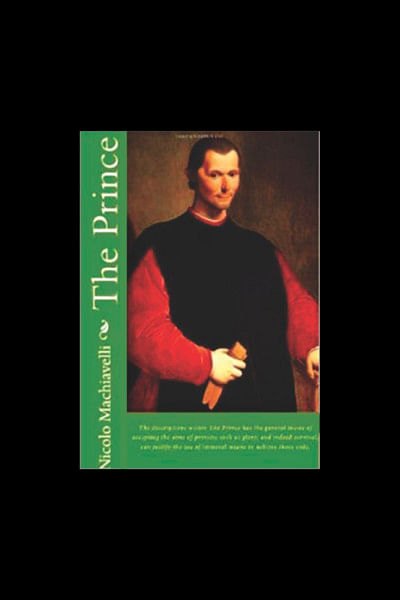The ruler every nation desires to have

The prince', written by Italian political theorist Niccolo Machiavelli, is one of the leading works of modern political philosophy. The book, written in first quarter of the 16th century, was dedicated by the author to Lorenzo de' Medici who was a de facto ruler of Florence. He wrote this book after a meticulous study based on the analysis of erstwhile political affairs and ancient history. The book contains 26 chapters in which he describes practical knowledge and ways of winning power and retaining that power as well.
In the very beginning of the book, the author alludes that the form of all states and governments is either republics or monarchies whereas 'The Prince' addresses merely 'monarchies'. He refers to two types of monarchies namely hereditary and new. The former one exists in that state where ruler inherits power from predecessors and the latter one where ruler holds power over either absolutely new state or a new territory added to the old existing state (the latter situation is called mixed monarchy). In author's opinion, states of new or mixed monarchies are conquered by the rulers' own power or gained through help of others, or resorting to criminal acts and among these the first option makes the ruler more secure to rule. But among all monarchies, rulers in hereditary states face less trouble in holding power as subjects are accustomed to their family than in new states as subjects here expect more from the new rulers.
Moreover, Machiavelli refers to another kind of monarchy where a private citizen becomes ruler either with the support of the nobles or common people. In that case, the ruler, coming to power with public support, rules more safely as noble people deem themselves equal to the ruler and possibly rebel. In addition, the author mentions another kind of state called 'church state' which is governed by ancient religious institutions. It is very hard for a citizen to climb to power of this state but whenever one becomes ruler it is easy and safe to maintain.
The book suggests that power will be sustained if good laws and good armed forces exist. Good laws cannot be ensured without strong armed forces. In doing so, author points out three kinds of troops namely mercenary, auxiliary and ruler's own troops, and among these the last one is highly dependable, loyal, disciplined and trustworthy.
Although in the initial chapters of 'The Prince', the author narrates how to grab power, in the later chapters the author describes about the virtues of rulers to maintain the power. In author's view, rulers should have some good qualities like benevolence, loyalty, and courage etc, but if needed he must forsake these virtues for the sake of power, even he may have to be cruel. He should be able to act like a fox to identify the trap and a lion to frighten the rebels for holding power. In addition, he has to know about the strategies of war, and should study history and action of great men as well. Moreover, a ruler has to choose capable, loyal and intelligent people as ministers and he should check their credibility whether they are reliable or not, because for utter selfishness, they can betray, and he should also avoid the flatterers as his position may become risky for them. The ruler must give the right only to the ministers to tell the truth and discuss with them about the matters and listen to their opinions, but decide on his own.
In the last chapters of the book, Machiavelli points out some reasons for which rulers in Italy lost their states and he tries to convince Medici ruler by saying that Medici family should take the power of Italy by rooting out the barbarians from this country.
The reviewer is a Lecturer, Department of Political Science at Jagannath University
She can be reached at: [email protected]

 For all latest news, follow The Daily Star's Google News channel.
For all latest news, follow The Daily Star's Google News channel. 



Comments